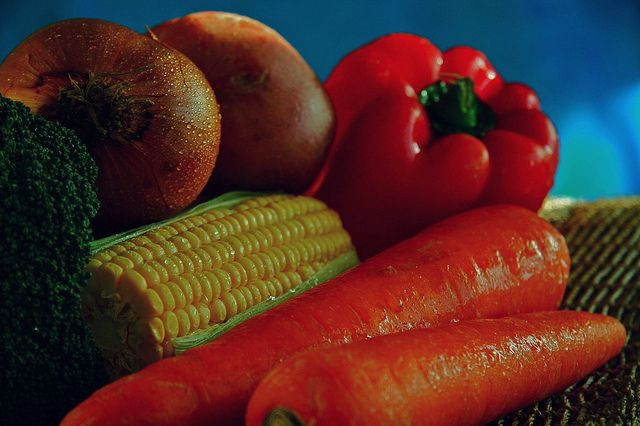Carrots Boost Sperm Performance By 8%: A New Fertility Superfood?

Men may now be more inclined to listen to mom’s age-old advice: eat your fruits and vegetables. Consuming yellow- and orange-colored fruits and vegetables — specifically carrots — are found to boost sperm quantity and quality by up to eight percent, according to a recent study.
In Western countries, there is growing evidence that average sperm counts have fallen by over half throughout the years. Environmental toxins and physiological changes in the body attributed to cellphones in pockets, and estrogen in milk or water are speculated to be the underlying cause for the drop in sperm performance.
Grace Centola, a sperm bank consultant and president-elect of the Society for Male Reproduction and Urology, has witnessed the statistically significant decline in semen volume, sperm count, and sperm motility over the years. “The age of sperm donors didn't change, so the drop couldn't be attributed to age — and even the technicians who took the samples remained the same,” she told LiveScience as she went through sperm donor data in the last eight years in Boston. Whatever the underlying cause of sperm count may be, men could potentially boost performance by turning to more natural treatments.
In the study published in the journal Fertility and Sterility, researchers from Harvard University evaluated the effects that a diet containing a variety of fruits and vegetables would have on the sperm of 200 healthy, young college-age men.
The participants who consumed sweet potato and melon were found to enhance the quantity and quality of sperm, but carrots were found to produce the best results overall — boosting sperm performance by 6.5 to eight percent, according to the researchers.
“In a population of healthy young men, carotenoid intake was associated with higher sperm motility and, in the case of lycopene, better sperm morphology,” the report states.
The sperm-boosting qualities of carrots derive from carotenoids — chemicals responsible for giving foods their familiar color. The human body converts carotenoids into health-boosting antioxidants like vitamin A, which help maintain healthy sperm and neutralize free radicals, according to the Mayo Clinic. Vitamin A can also be found in broccoli, sweet potatoes, and oatmeal.
“Our data suggest that dietary carotenoids may have a positive impact on semen quality,” the researchers wrote.
Men who ate red fruits and vegetables, especially tomatoes, had fewer abnormally shaped sperm due to the presence of the anti-cancer chemical lycopene. Tomatoes were found to contribute to between eight and 10 percent more “normal” sperm, which could make a significant difference in couples who are trying to conceive, the Daily Mail reports.
In a different study presented at the American Society for Reproductive Medicine’s 2013 Annual Meeting in Boston, researchers found a high-saturated fat diet, such as bacon, could lower sperm count. “We found the effect of processed meat intake lowered quality and fish raised quality,” said Dr. Myriam Afeiche from the Harvard School of Public Health. Men who consume fish and fresh fruits and vegetables were more likely to have healthier sperm than their counterparts.
According to the Centers For Disease Control and Prevention, approximately eight percent of all sexually experienced men younger than age 45 have seen a fertility doctor during their lifetime.
To learn how to boost male fertility naturally, click here.
Published by Medicaldaily.com



























